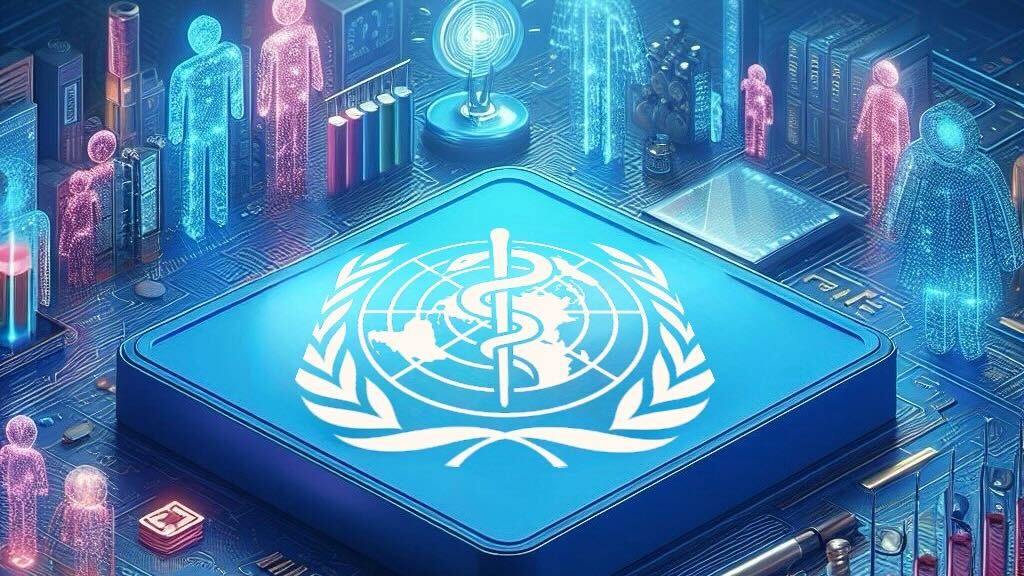WHO Unveils Guidelines on Ethical Use of Generative AI for Health Services

In a significant step towards the responsible oversight of emerging generative AI technologies within the healthcare landscape, the World Health Organization (WHO) has put forth an extensive set of recommendations regarding Large Multi-Modal Models (LMMs). These models, proficient in processing various types of data including text, video, and images, have seen a remarkable surge in utilization, particularly with platforms like ChatGPT, Bard, and Bert gaining immense popularity in 2023. artificial intelligence The WHO’s recommendations present a rich array of over 40 guidelines aimed at governments, tech enterprises, and health practitioners, all directed towards ensuring the ethical deployment of LMMs that serve to enhance and safeguard public health. Dr. Jeremy Farrar, WHO’s Chief Scientist, reiterated the promising potential of these technologies in the medical domain, while also emphasizing the critical need for clear information and regulatory frameworks to navigate the associated risks.
LMMs are notable for their ability to replicate human-like communication and execute functions that aren’t strictly programmed. According to the WHO's outline, these models exhibit five primary applications within the healthcare realm, including diagnostic processes and clinical care, assisting patients in researching symptoms and treatments, handling administrative functions within electronic health records, facilitating medical education via simulated interactions, and furthering scientific research and pharmaceutical development to discover new treatments. generative AI However, there are recognized risks linked to LMMs, such as the potential dissemination of false or misleading information, which could be detrimental for individuals relying on such data to make crucial healthcare decisions. The integrity of the information produced can be compromised by biases in the training datasets, especially those related to sensitive attributes such as race, ethnicity, gender identity, or age.
Beyond individual concerns, the WHO recognizes wider implications for healthcare systems introduced by LMMs. These encompass issues of equitable access to cutting-edge LMMs, the risk of ‘automation bias’ impacting both healthcare providers and patients, and vulnerabilities that could threaten patient confidentiality and the reliability of AI implementations in healthcare settings.
Engagement of Stakeholders is Crucial for LLMs Deployment
To tackle the highlighted issues, the WHO stresses the necessity for the active participation of various stakeholders throughout the lifecycle of LMM development and deployment. Governments, tech companies, healthcare providers, patients, and the broader community are invited to ensure the responsible application of AI technologies. cybersecurity The guidelines lay out precise expectations for governmental bodies, entrusting them with the primary role in setting the benchmarks for the development, implementation, and integration of LMMs within public health and healthcare procedures.
Authorities are encouraged to invest in or facilitate non-profit or public infrastructure, such as computing resources and public datasets, that developers from diverse fields can access. This is contingent upon users embracing ethical standards and principles. Legislative measures are to be enacted to ensure that LMMs used in healthcare align with ethical mandates and uphold human rights standards, protecting essential aspects such as dignity, autonomy, and confidentiality.
The guidance also advocates for the creation of either existing or new regulatory agencies to evaluate and grant approval for LMMs and related applications intended for healthcare. Additionally, ongoing third-party audits and impact evaluations should be mandatory for significant LMM implementations. These evaluations should consider data protection and ensure human rights are prioritized, with results broken down by user demographics like age, race, or disability.
Developers of LMMs hold crucial responsibilities. They are encouraged to engage potential users and all relevant stakeholders — which include medical practitioners, scientific researchers, healthcare workers, and patients — from the early stages of development. A transparent, inclusive, and systematic design process should enable stakeholders to voice ethical considerations, concerns, and provide feedback.
Moreover, LMMs should be crafted to execute specific tasks with the required accuracy and dependability to support healthcare systems and promote patient welfare. It is essential for developers to anticipate and understand the potential secondary consequences of their AI solutions.
, please be advised that the information on this page is not intended to constitute and should not be perceived as legal, tax, investment, financial, or any other form of professional advice. It is crucial to invest only what you can afford to lose and seek independent financial counsel if in doubt. For further details, please refer to the terms and conditions along with the help and support sections available from the issuer or advertiser. MetaversePost is dedicated to presenting accurate, unbiased reports, though market conditions may shift without notice.
Kumar is a seasoned Tech Journalist focusing on the vibrant intersections among AI/ML, marketing technology, and emerging sectors such as crypto, blockchain, and NFTs. With over three years in the field, Kumar has demonstrated a knack for crafting engaging stories, conducting enlightening interviews, and producing thorough analyses. Kumar excels in generating high-impact content, including articles, reports, and research papers for leading industry outlets. With a distinctive blend of technical acumen and storytelling prowess, Kumar makes complex tech concepts accessible to a wide range of audiences in an engaging and articulate manner. AI development Cryptocurrencylistings.com Launches CandyDrop to Make Acquiring Cryptocurrency Easier and Boost User Engagement with Quality Projects
DeFAI Needs to Crack the Cross-Chain Challenge to Realize Its Full Potential
Disclaimer
In line with the Trust Project guidelines dRPC Introduces NodeHaus Platform to Enhance Blockchain Accessibility for Web3 Foundations







